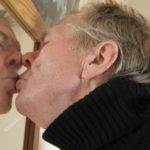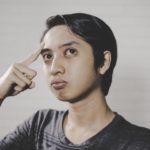“Heraclitus called self-deception an awful disease and eyesight a lying sense.”
DIOGENES LAERTIUS, LIVES OF THE EMINENT PHILOSOPHERS, 9.7
In this month’s posts, we’ve already talked at length about the need to assess ourselves so that we can find our hidden strengths and weaknesses. We do this because knowing the truth about ourselves and working on our self-awareness is the first step toward becoming freer, through our study of philosophy.
But what if we lie to ourselves? What a terrifying thought. What if, when evaluating ourselves, we are overcome by what The Daily Stoic calls “Oiesis, self-deception or arrogant and unchallenged opinion”?
We can’t always trust our own view of ourselves, after all. The quote above calls “eyesight a lying sense,” and we’ve all experienced this when we look in the mirror and convince ourselves that we’re thinner or more attractive than we really are. The same risk exists when assessing our inner selves, as well. We are prone to think things are better or worse than they truly are.

This type of self-deception is dangerous when you’re just starting out with philosophy and you are trying to get the ‘lay of the land’ — an honest understanding of where you currently are, and where you need to go. You risk starting from the wrong position. How can you avoid this oiesis?
The book’s author Ryan Holiday says that the first step is to just take a pause for a moment and enlist your brain. Don’t be so quick with your assumptions about where you’re at, and where your failings and victories are. Take a moment to strip away the extraneous and be honest with yourself, so that your self-assessment is an honest one that will help, rather than hinder, on the rest of your journey.
A little help from your friends

It occurred to me while reading today’s chapter that you could enlist the help of wise and kind people who you trust, to give you their feedback on your assessments. You want to avoid asking people who enjoy being critical, of course, or who get off on cutting people down to size — you’re better off avoiding that.
But a truly honest friend, who won’t let you sugarcoat your strengths — and likewise won’t allow you to belittle yourself either — could be of immense help in this regard. Their ‘second opinion’ could perhaps assist you in avoiding the danger of self-deception.
In the end, you’ll still need to do the hard work yourself. No friend can complete this task for you… it’s called self-assessment for a reason, and it needs to originate from you. But asking them “Is this an honest statement about my courage?” or “Is it fair to say that I need to work on this?” could illuminate where your oiesis lies.
And then, of course, take their feedback with a grain of salt — they are also influenced by their own illusions and emotions, so in the end you’ll have to simply accept it as another input, another piece of information, and complete your final evaluation by yourself.





